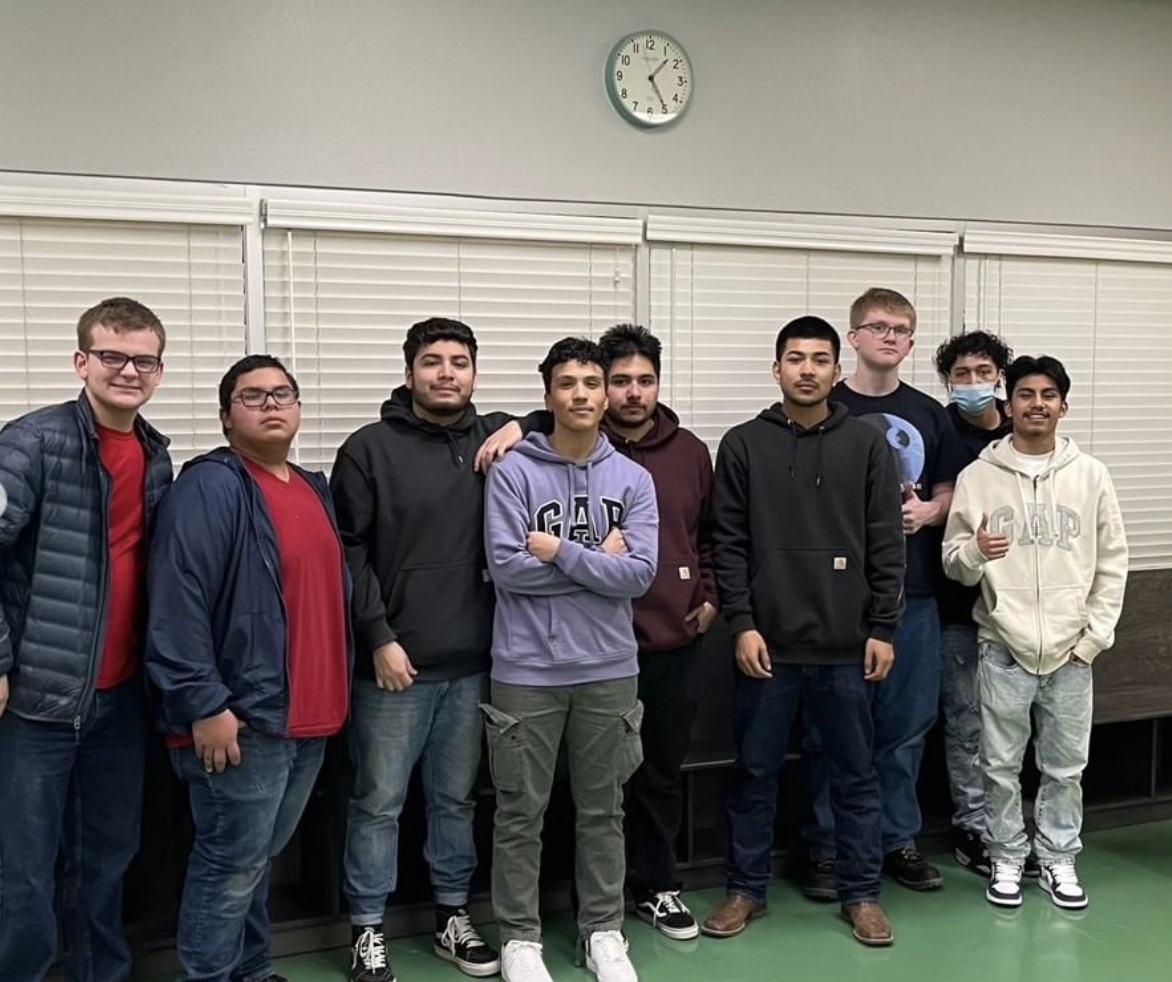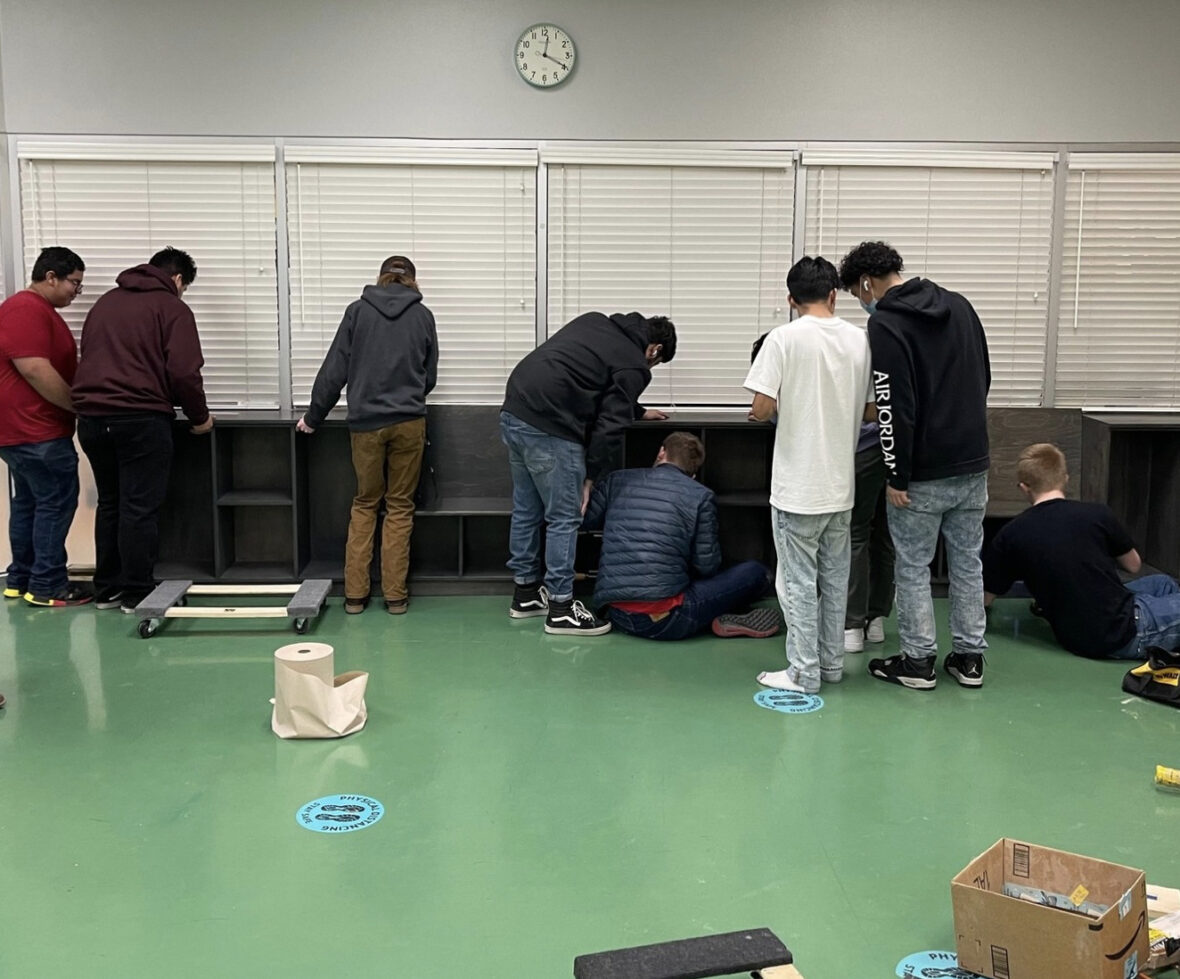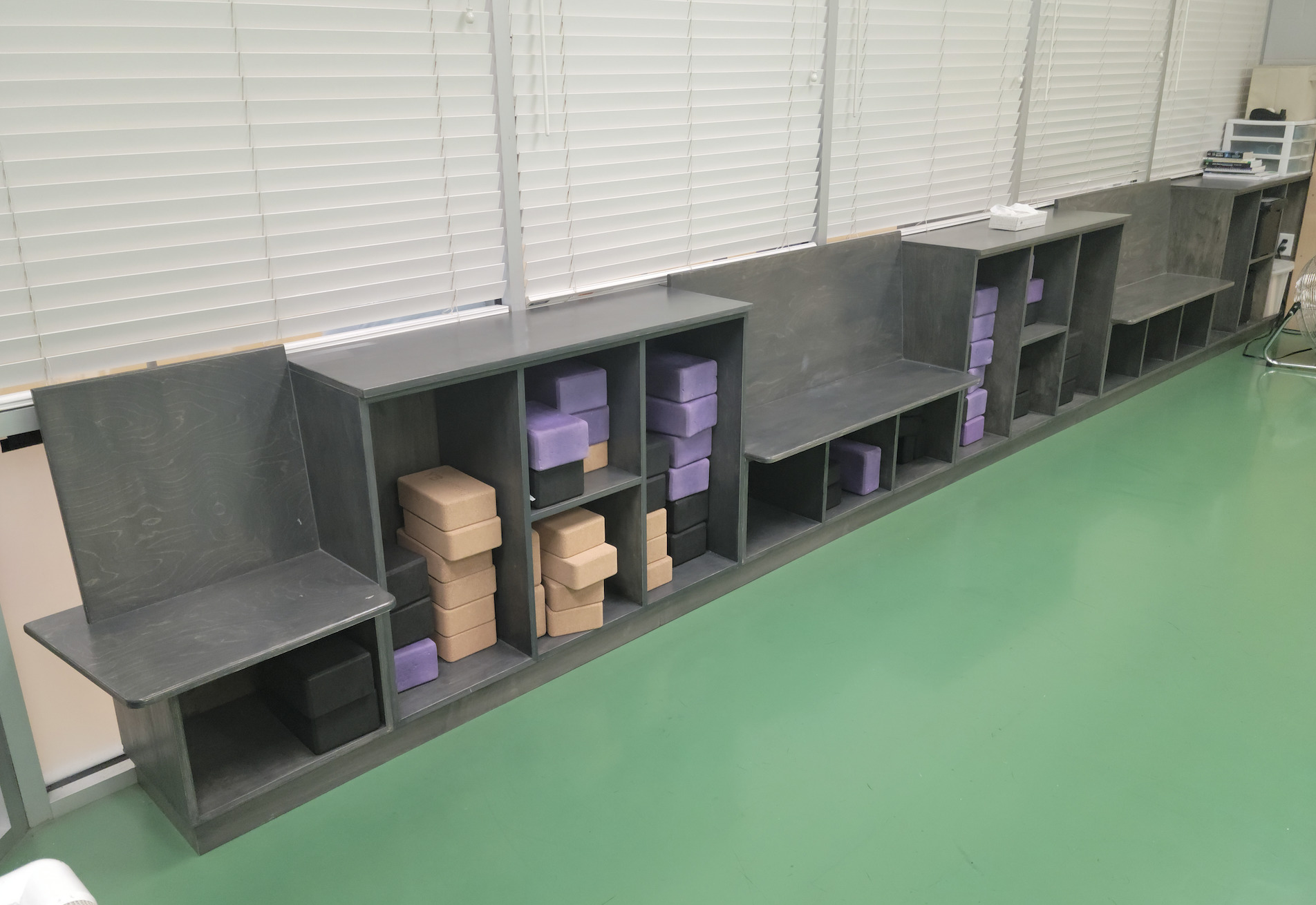Elevate Academy’s mission is to prepare its at-risk students for their “next step.” Whether they go to college, get a job or join the military, leaders at the career-technical charter school want to ensure their students have the necessary skills for success.
Folded into that goal is Elevate Industries, a program that allows students to work real jobs and earn money through student-led businesses. Each of the school’s eight trades has its own business.
The students have built picnic tables and helped revamp the downtown Caldwell ice skating rink. They’ve built shelving for the Treasure Valley YMCA and catered events for local businesses. Now, they’re working to open a coffee shop on campus.
Beyond an annual paycheck, students say the program gives them real-world experience and teaches job skills that will help them long after they graduate.
Students learn business skills and push through challenges
To join Elevate Industries, students submit an actual application, go through the hiring process and fill out a W-9 form. They clock into work, pay taxes on their income and go through the motions of any typical job.
Each of the school’s eight trades has a business:
- Business services.
- Construction.
- Criminal justice.
- Culinary arts.
- EMT.
- Graphic arts.
- Manufacturing.
- Welding/metal craft.
Each business completes projects aligned with its trade. Construction students build bookshelves and tiny homes, welding students fix lawn mowers and make decorative signs, and graphic arts students screen print T-shirts.
Business students are in charge of coordinating projects for every trade. They send invoices, communicate with clients and ensure orders are fulfilled. In return, they take 5% of the profits.
Hector Bustamente, a culinary arts and business student, is collaborating with his classmates to open up “The Lift,” Elevate’s in-house coffee shop.
The students don’t get along all the time, and getting them to work together to open the shop has been challenging, said culinary arts teacher Jessica Skollingsberg. But ultimately, it’s proving to be a valuable learning experience in conflict resolution.
Students who work at the coffee shop use QuickBooks, Square payment technology and a work operating system. Bustamente says learning to use the technology will help him in his future workplaces. He plans to get QuickBooks certified and add the skill to his resume.
Jaden Haskell, a graphic arts and business student, wants to translate the skills he’s building into a future photography business. Right now, the junior is in charge of coordinating graphic design orders, most of which involve screen printing shirts for local businesses.
“This is stuff I never would have done in a normal high school,” said Haskell. “I’m so involved in my community and I’m involved in my school. I just think this is a great experience for me.”
Elevate’s charter administrator C.J. Watson says he’s already seen the program’s impacts.
The class of 2022 was Elevate’s first year of graduates. Each graduate – around 80 students – left with a well-paying job with a 401(k) and benefits, is enrolled in a postsecondary program or is enlisted in the military. To read more about Elevate, click here.
Watson got a call two weeks ago from a 2022 graduate. He was working a well-paying job, but felt his skills weren’t being fully utilized.
“He set up a time with his boss, talked about the ways he thinks he can grow and be pushed,” Watson said. “The next week, he got promoted with a $3 bump. I think that came down to the Industries. It’s teaching them problem solving and how to advocate for themselves, how to communicate clearly and how to email well. How to accept when something fails and still adapt to it.”
Community partners say Elevate is a logical stop for their needs
Erik Bullock, the Treasure Valley Family YMCA‘s executive director and an Elevate Academy board member, recruited students to craft and install shelving in three areas of the YMCA.
Bullock considered ordering shelving online, but opted for Elevate because the students could customize the units, and would gain valuable experience in the process.
The students visited the building, discussed the project vision and took measurements. They came back to Bullock with mock-up designs and got his approval before building and installing the units. 


“What I was really happy about is that they paid attention to the small details, like a sharp corner,” Bullock said. “They smoothed everything out and made it comfortable and safe for anyone who uses it.”
Corey Turner, facilities manager for Destination Caldwell, recruited Elevate students to restore picnic tables in downtown Caldwell. They were faster and less expensive than other options, and were eager to do the work, said Turner.
“(Elevate) is teaching these students to be respectful,” Turner said. “They’re learning to be good stewards of the community.”
At the end of last school year, the student businesses were turning away requests because they had reached a maximum workload, Elevate co-founder Monica White said.
Students sustain a ‘mini city’ through Elevate Industries
Each student receives a check at the end of the year for their work in Elevate Industries. Some earned up to $900 last year.
But they also pay taxes. Elevate takes 20-30% of profits to retool classrooms and fund its scholarship program, and some money also goes to support the public service trades, like criminal justice and EMT services.
Students in these trades participate in the Industries program, but a majority of their work is done at and for Elevate.
Criminal justice students direct traffic in the mornings and work as security officers during lunch, and EMT students work as campus nurses. If a student gets hurt playing basketball, an EMT student is the first responder.
“We’re treating Elevate like a mini city,” said Watson.
Criminal justice students also run Youth Court, a peer-to-peer conflict resolution program.
Students on the court train in empathy, vulnerability and restorative justice practices, and are tasked with “course-correcting” their classmates who have committed minor offenses.
“Their job is to figure out the ‘why’ in what’s going on,” said Watson. “They make it a much larger conversation, which we’ve found tends to be more powerful.”
Watson says the Youth Court is also branching to the Nampa School District. The school holds a night court once a week, and plans to teach the district how to create its own program.
